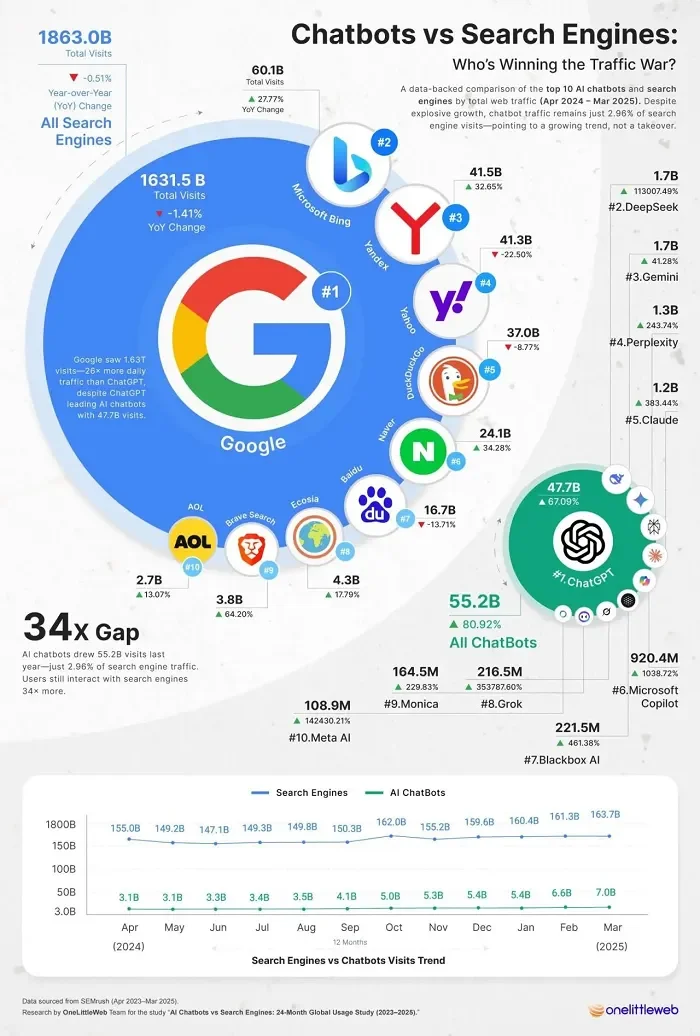
Google’s AI Search Revolution: Can It Maintain Dominance Against Emerging AI Chatbots?
Google is facing unprecedented challenges to its search dominance with the rise of AI chatbots like ChatGPT. At Google’s flagship developer conference, **Sergey Brin** emphasized the importance of AI, revealing his dedication to achieving artificial general intelligence. But the real question is: can Google successfully integrate AI into its search engine without jeopardizing its $198 billion advertising revenue?
Sundar Pichai unveiled a "total reimagining of search" with the introduction of "AI mode," set to be embedded in Google’s search bar, browser, and apps. This allows for conversational answers, a direct response to the challenge posed by OpenAI’s ChatGPT. This project seeks to leverage Google's Gemini large language models, vast data centers, user base, and network of applications, but the crucial issue is monetization.

Google plans to introduce paid subscriptions for advanced AI products and insert targeted ads into AI mode. However, investors remain wary, and the company faces antitrust challenges, potentially forcing the sale of key assets. Despite these hurdles, Google's search revenues have supported innovations like Waymo's self-driving cars and AlphaFold. Jim Tierney of AllianceBernstein notes that Google will "battle for every point" in this new world, but its future market share is uncertain.
The launch of AI mode, powered by an upgraded Gemini model, aims to provide accurate and speedy answers to users. Ben Gomes highlights the ability to ask questions in natural language. This new feature is a response to previous criticism of its predecessor, "AI Overviews," which faced ridicule for providing inaccurate information.
Despite competition from ChatGPT, Google still dominates search, handling 90% of web searches. Aravind Srinivas, CEO of AI search startup Perplexity, acknowledges Google's reach but argues that its business is vulnerable due to its reliance on search. Perplexity is even in talks with Apple to create a search option for its Safari browser.

Google is also exploring subscription fees for computationally expensive models and testing product placement in AI mode. They are focused on creating targeted advertising experiences through their users' data. One example is the new "try it on" feature for clothes shopping that uses AI to approximate fit.
However, new AI tools are not without risks, as LLMs can be prone to errors. Google has also unveiled other innovations, including Project Mariner and Project Astra. A journalist was given a demonstration of Gemini on Android XR glasses.

Competitors and analysts are pointing out is the increasingly important of omnichannel SEO strategy. Relying solely on Google is risky. Users now navigate through multiple digital touchpoints, from social platforms to AI chatbots. To enhance visibility, businesses must create content across platforms and adapt to evolving search technologies.
Google's AI Mode is a significant step in its ongoing evolution, but its success hinges on effectively monetizing the technology while avoiding the pitfalls of inaccurate information. What are your thoughts on Google's strategy? Will it be enough for Google to keep its dominance in the era of AI? Share your opinions in the comments below.